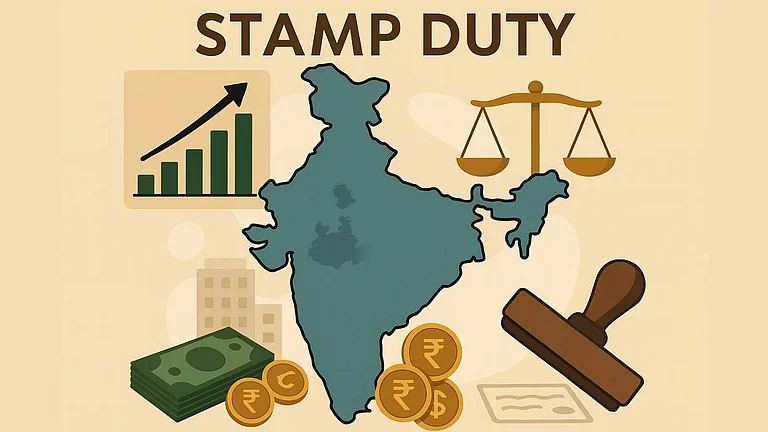
Summary of this article
- In India, most rental contracts are capped at 11 months to sidestep mandatory registration under the Registration Act, 1908, which kicks in at 12 months.
- This helps landlords avoid added paperwork, stamp duty, and registration costs.
- An 11-month agreement typically signed on a Rs 100 stamp paper offers legal protection, defines responsibilities, and provides flexibility.
- Courts accept these contracts if signed properly by both parties and witnesses.
- Without such an agreement, tenants risk losing legal safeguards. Renewal or overstay without a new contract can weaken enforceability.
- It's a low-cost legal buffer, not a loophole used widely across Indian cities.
An 11-month tenancy agreement is a legally enforceable document establishing terms between a landlord (or his legal representative) and tenant. It lays down duties, rent, maintenance obligations, security deposit, notice period, obliging both parties for a stipulated time without invoking statutory registration requirements.
Why Most Rent Agreements Are of 11 Months Duration?
Landlords, advised often by legal professionals, stop at an eleven‑month term for two critical reasons:
No mandatory registration: Under the Registration Act, 1908, any tenancy exceeding one year requires compulsory registration. Since registration involves time, cost, and formality, most avoid it.
Lower costs upfront: Stamp duty is minimal (often just Rs 100), and no registration fees are required, making the agreement simpler and cheaper to execute.
These factors give both parties flexibility without bureaucratic overhead.
Why is a Rent Agreement Necessary if it's Only 11 Months?
Despite its short duration, the agreement is essential. It formally defines the relationship, terms and expectations, including rent, maintenance, breach clauses, and termination options.
Serves as evidence in disputes courts in India generally recognise such contracts if executed correctly: signature by landlords, tenants, two witnesses with ID, and on stamp paper.
In the absence of this document, parties have little to rely on in case of disagreement.
What Makes the 11‑Month Format Legally Valid?
For legal enforceability, such a contract should be printed on proper stamped paper (approximately Rs 100 value) and contain unmistakable signatures of the landlord, the tenant, and two witnesses (with ID proof).
Be executed by signatories who are either the property owner or designated through a power of attorney.
Courts accept such agreements as valid evidence in eviction or rent-related disputes.
What Happens if the Tenant Stays Beyond Eleven Months?
If tenancy extends over 11 months and is not renewed, it can fall back to a continuing agreement. On the other hand, it is possible for courts not to give full value to it if it has expired or was never registered officially. The terms will vary depending on what is common in your contract, but are usually: a 30-day notice period, or a fine of a month's rent, etc.
The term can end if the tenancy comes to an end before its term, and there is a valid clause allowing that. Local rent control laws might also affect early exit rights.
But what if no 11‑month agreement is made?
Without this formal agreement:
The relationship becomes informal, without written terms.
Landlords might demand a longer duration, activating registration and duty fees.
Tenant's protection is undermined by the fact that dispute resolution is more complex.
Example: If rent is Rs 20,000/month for a twelve‑month term, stamp duty might cost 2% of Rs 240,000, or Rs 4,800. Add a security deposit, which raises costs significantly, as compared to the simple Rs 100 stamp paper for eleven months.
What Constitutes a Breach of an 11‑Month Rent Agreement?
Common Tenant Breaches:
- Non‑payment or late payment of rent
- Unauthorised alterations or sub‑letting
- Unauthorised pets or excessive damage to property
- Typical Landlord Breaches:
- Entering premises without notice
- Failure to provide a minimum standard of living
- Withdrawing promised services (e.g., water, electricity)
- Changing terms unilaterally without mutual consent
















